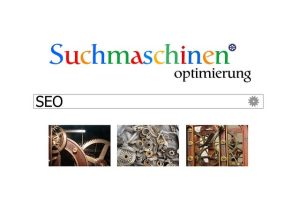By 2025, content marketing will undergo a significant transformation driven by AI, ML, and evolving digital trends, as highlighted by the Future of SEO Conference. Key shifts include personalized, interactive experiences leveraging data analytics, immersive formats like AR/VR, and AI-powered personalization. Voice search optimization, natural language queries, and conversational intent will be crucial. Advanced segmentation based on user preferences will enable high-impact content marketing. Visual storytelling using interactive videos, AR, and VR will captivate audiences. Ethical practices focusing on valuable, authentic content will foster trust and strengthen brand-customer relationships. Advanced analytics will drive data-informed strategies, maximizing ROI in a dynamic digital landscape.
Content marketing is evolving rapidly, and 2025 promises transformative changes driven by AI, voice search, and immersive media. In this dynamic landscape, marketers must adapt their strategies to engage audiences effectively. From leveraging machine learning for SEO optimization to crafting personalized content experiences, the future demands innovative approaches. Join us as we explore these trends at the upcoming Future of SEO Conference, where industry experts will delve into the latest tactics for successful content marketing in the years to come.
Evolving Content Strategies: Adapting to the Changing Landscape

In 2025, content marketing strategies must evolve to keep pace with the dynamic digital landscape. The future of SEO Conference highlights a shift from traditional, one-size-fits-all approaches towards more personalized and interactive content experiences. Marketers are increasingly recognizing the importance of creating relevant, engaging content that resonates with specific audience segments. This involves tailoring content not just for search engines but also for individual user preferences and behaviors.
Artificial intelligence (AI) and machine learning will play a pivotal role in this evolution. These technologies enable more precise targeting and delivery of content, ensuring that marketing messages reach the right people at the right time. As competition intensifies, brands will need to adopt innovative strategies, such as leveraging data analytics for better insights into consumer behavior, creating immersive content formats like augmented reality (AR) and virtual reality (VR), and utilizing AI-driven personalization to deliver hyper-relevant experiences.
AI and Machine Learning: Revolutionizing Content Creation and SEO

Artificial Intelligence (AI) and Machine Learning (ML) are set to revolutionize content marketing in 2025, transforming both content creation and SEO strategies. These technologies can analyze vast amounts of data, understand user behavior, and generate personalized content at scale, enhancing customer experiences and driving engagement. In the context of Future of SEO Conferences, experts predict that AI will play a pivotal role in optimizing content for search engines by automatically identifying keywords, topics, and trends.
Furthermore, ML algorithms can adapt to evolving search patterns, ensuring content remains relevant and ranks higher on search engine results pages (SERPs). As content marketing continues to evolve, leveraging AI and ML will enable businesses to create dynamic, data-driven content that resonates with their target audiences, ultimately boosting online visibility and driving conversions.
Voice Search Optimization: Reaching the Audience in 2025

Voice search is set to dominate in 2025, reshaping the way users interact with content. With advancements in AI and virtual assistants, more people are using voice commands to access information, making voice search optimization a crucial aspect of content marketing strategies. This shift requires marketers to adapt their approach by focusing on natural language queries and creating content that resonates with voice search intent.
The Future of SEO Conference will highlight the importance of understanding user behavior and tailoring content accordingly. Optimizing for voice search involves incorporating long-tail keywords, answering common questions directly in content, and ensuring mobile-friendliness. Marketers should also consider the context of searches, as voice queries often differ from text searches, leading to more conversational and specific content creation.
Personalization at Scale: Crafting Targeted Content Experiences

Personalization at scale is set to be a key focus in content marketing by 2025, as businesses aim to provide highly targeted and relevant experiences for their audiences. With advancements in technology, marketers can leverage data-driven insights to create personalized content that resonates with individual users. This shift towards personalization was highlighted at the Future of SEO Conference, where experts discussed strategies to cater to the evolving expectations of modern consumers.
By utilizing machine learning algorithms and sophisticated analytics tools, brands can analyze vast amounts of customer data to segment audiences precisely. This allows for the creation of tailored content that considers each user’s unique preferences, behaviors, and demographics. From customized email campaigns to dynamic website experiences, personalization at scale promises to deliver higher engagement rates and improved conversion outcomes.
Visual Storytelling: The Power of Immersive Media in Marketing

In 2025, visual storytelling is poised to revolutionize content marketing strategies, as brands seek to captivate audiences in an increasingly digital landscape. Immersive media, such as interactive videos, augmented reality (AR), and virtual reality (VR), are expected to play a significant role in engaging consumers, making marketing more dynamic and memorable. According to insights from the Future of SEO Conference, these technologies allow marketers to create compelling narratives that transcend traditional text-based content, fostering deeper emotional connections with their target audience.
Brands that embrace visual storytelling can effectively convey complex ideas and product benefits in a more accessible manner. Interactive videos, for instance, enable viewers to make choices that influence the storyline, enhancing user experience and encouraging active participation. AR and VR technologies further push the boundaries of immersion, allowing customers to virtually try on products, explore brand experiences, or participate in interactive games, thus driving higher levels of engagement and conversion.
Ethical Content Marketing Practices: Building Trust and Credibility

As we look ahead to 2025, the landscape of content marketing is poised for significant evolution, especially with the ongoing digital transformation and shifting consumer behaviors. Among the many trends, ethical content marketing practices are set to take center stage, not just as a responsibility but as a competitive advantage. Building trust and credibility through authentic, transparent, and valuable content will be paramount in gaining and retaining audiences.
In preparation for the Future of SEO Conference and beyond, marketers must prioritize creating content that resonates with their audience’s genuine needs and interests. This involves steering clear of overly promotional or manipulative tactics, focusing instead on delivering insights, entertainment, or solutions. By fostering trust, brands can establish lasting relationships with customers, becoming reliable sources of information in an increasingly cluttered digital space—a key factor for success in the competitive marketing arena of 2025 and beyond.
Measuring Success: Advanced Analytics for Content Marketing Campaigns

In 2025, content marketing strategies will increasingly hinge on advanced analytics to measure success and optimize campaigns. As discussed at the upcoming Future of SEO Conference, tools powered by artificial intelligence (AI) and machine learning (ML) will play a pivotal role in understanding audience behavior and preferences more accurately than ever before. Marketers can leverage these insights to create highly tailored content that resonates deeply with target demographics, driving engagement and conversions.
Furthermore, predictive analytics will enable content creators to anticipate trends, identify emerging topics, and stay ahead of the curve. This forward-thinking approach ensures that marketing efforts remain relevant and impactful in a rapidly evolving digital landscape. By embracing these advanced analytics techniques, businesses can elevate their content marketing strategies to new heights, maximizing ROI and achieving remarkable results.
